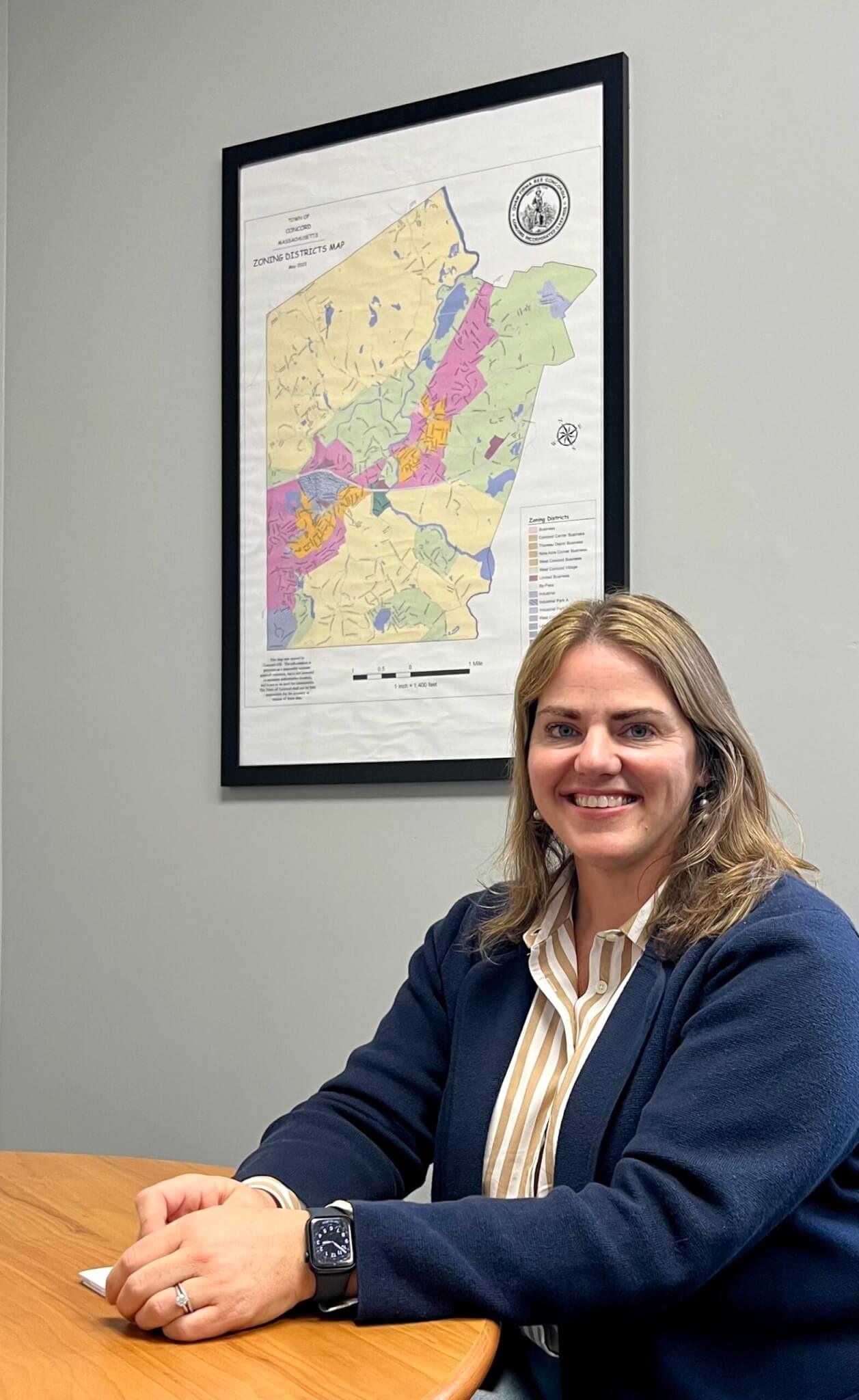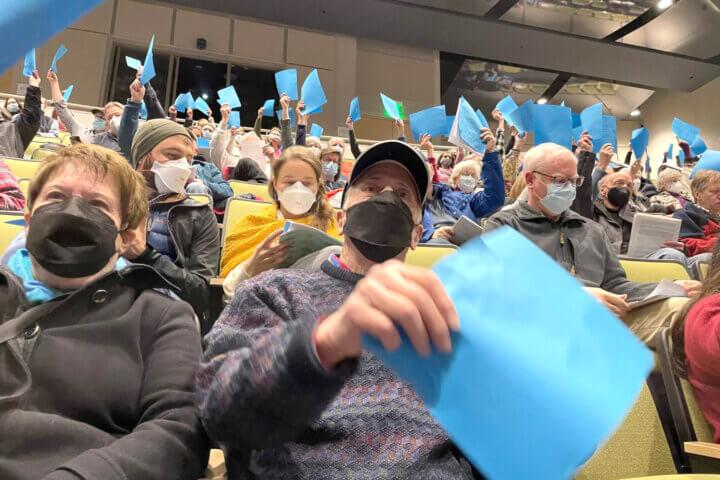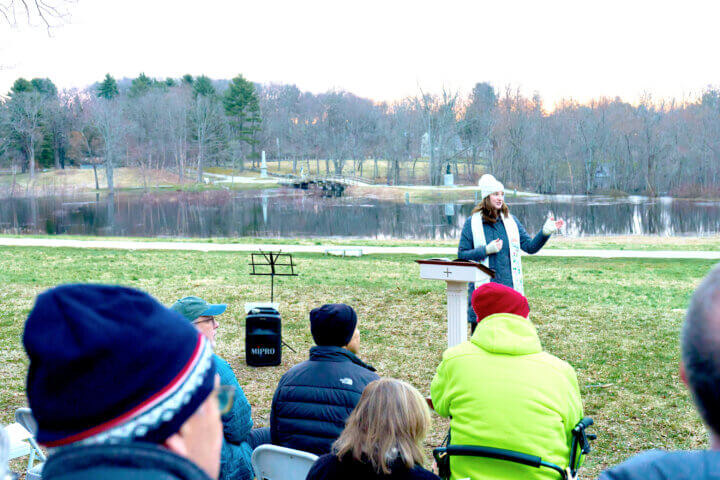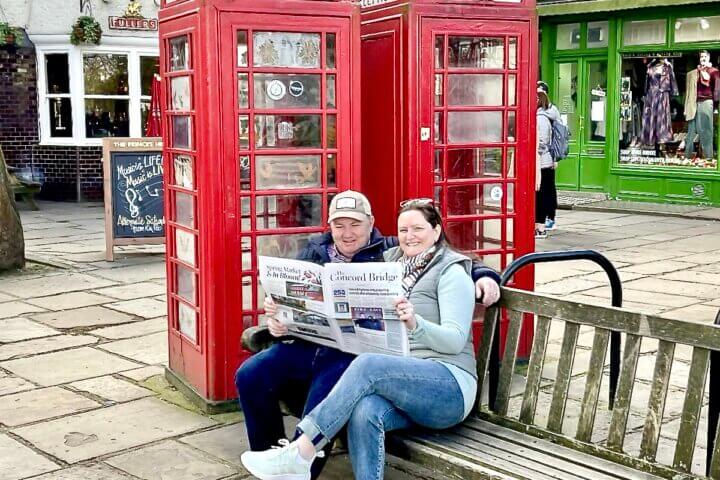Deputy Town Manager Megan Zammuto, whose official job description expanded last year to include the role of director of land planning and management, is one of the town’s point people in shaping the local response to the news that MCI-Concord is slated to shut down in June — and that the town may get control of some or all of the 50-acre property. She spoke to The Concord Bridge about the road ahead.
This conversation has been edited for length and clarity.
Q. Any thoughts on Concord not getting a lot of advance notice of the decision to shut down the prison?
A. I think it’s still very early. The [governor’s] budget’s going to have to be voted on later this year, and we fully expect to work with the state on next steps. The language that they put in the budget allows for the possibility of a very close collaboration for the disposition of property. [I] imagine we’ll be working together as this plays out, because we have such a vested interest in the future of the site.
Q. Very broadly, what could this mean to the town?
A. It’s a very exciting opportunity, not just for the town — I’d say also regionally. This parcel is on Route 2. It’s on the Bruce Freeman Rail Trail. It’s within a half a mile of the West Concord train station … We’ve gone through a lot of planning processes as a community with Envision Concord 2030; the housing production plan. And those really speak to some of the things that we could be interested in, which could include mixed use, because it’s within walking distance to these transportation hubs … We’re definitely looking at this through a sustainability lens, through potentially housing diversity. There’s a historical component that’s come up a lot. This has been here a long time. There’s a legacy here, [and] we’re thinking about what a change in use would mean.
Q. What do we know now about the financial impact on the town of the closure?
A. We’re still trying to pull out [exact] numbers [on] the impact. The two that surfaced immediately are the water enterprise funds [and] the Municipal Light Plant. They’re ratepayers. And so we’re trying to compile our information internally about what the impact will be.
Q. People have been talking about the rotary. Any thoughts on the possibilities?
A. I think there is a lot of momentum around the rotary right now. The Massachusetts Department of Transportation has recently done a Route 2 study, and they are planning on discussing what they found with stakeholders [through] different types of meetings.
Q. Everybody may want something different for that property. What about community input?
A. The question of how the state will want to dispose of the property hasn’t been resolved yet since this is brand new, but there’ll definitely be a high level of community engagement — like everything we try to do here.
Q. Any potential drawbacks or complications of the prison closing?
A. There’s been discussions about [the fact that] this has been here a long time in the community and the closure certainly impacts a lot of people, and so we want to be sensitive to that. That’s an important part of this as well.
Q. Right, so will it affect people locally who might be visiting inmates or providing any business services to the prison? People in the community volunteer within that prison, also.
A. I don’t think I’m probably the best person to speak on that, but they’ve been a staple in this community for so long. I think we will feel an impact of the closure and [will try] to honor that legacy while also looking to the future and partnering with the state, hopefully to achieve some mutual goals that will be beneficial to Concord and to the region.
Q. Any part of the land that could be contaminated in a way that would need remediation?
A. There’ll be a lot of things that need to be done before the site is developed — an analysis and a study of the parcel as it is, including environmental concerns and impact … but I don’t have don’t have any reports at this point that talk about what’s on there right now.
Q. When the state talks about “disposal of the property,” is that specific to the town of Concord and a municipal use? Could a developer just show up and offer to buy it?
A. We just don’t know how they’re planning to dispose of the property yet. There’s a few different options, but there are the state procurement [rules] that municipalities and the state need to follow for how to purchase and sell property … I think it’s just important to note that while we hope to partner with the state on this, and it is in our community, we don’t own it. We don’t own it right now.





